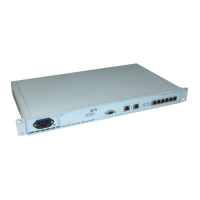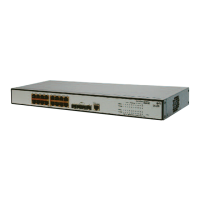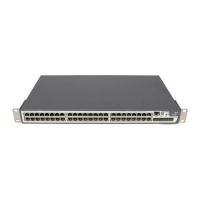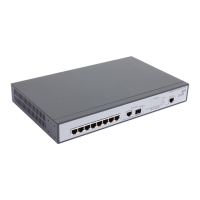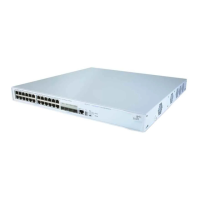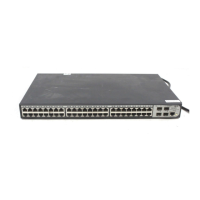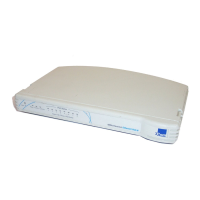Defining IP-based ACLs 83
■ UDP — User Datagram Protocol (UDP). Communication protocol
that transmits packets but does not guarantee their delivery.
■ ICMP — Internet Control Message Protocol (ICMP). The ICMP
allows the gateway or destination host to communicate with the
source host. For example, to report a processing error.
■ IGMP — Internet Group Management Protocol (IGMP). Allows
hosts to notify their local switch or router that they want to receive
transmissions assigned to a specific multicast group.
■ Flag Type — Indicates TCP flags by which the packet is classified.
■ Flag Set —Sets the indicated TCP flag that can be triggered.
■ ICMP Type — Specifies an ICMP message type for filtering ICMP
packets.
■ ICMP Code —Specifies an ICMP message code for filtering ICMP
packets. ICMP packets that are filtered by ICMP message type can also
be filtered by the ICMP message code.
■ IGMP Type — IGMP packets can be filtered by IGMP message type.
■ Source — Defines the TCP/UDP source port to which the ACL is
matched.
■ Destination — Defines the TCP/UDP destination port.
■ DSCP —Matches the packet DSCP value to the ACL. Either the DSCP
value or the IP Precedence value is used to match packets to ACLs. The
possible field range is 0-63.
■ IP - Prec. — Indicates matching ip-precedence with the packet
ip-precedence value.
■ Action — Indicates the ACL forwarding action.
